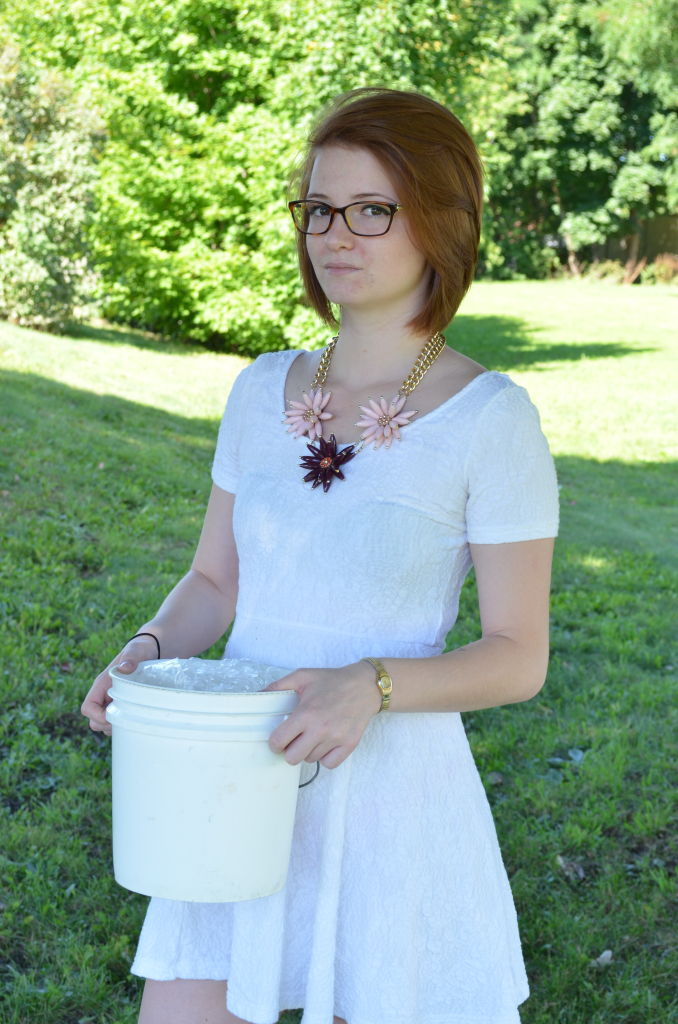By Myriah Saulnier
It was 1948 and Jeanette Arsenault was waiting on her bike outside the post office where she worked. Rufus Doucet – also known by his nickname Sam – saw her and without hesitation walked up to her to ask her to the dance that night. She said yes.

Their love story is similar to one taken from a fairytale. Arsenault and Doucet danced and fell in love that night and began a long-distance relationship the very next day, which lasted three years with the help of constant love letters until they got married in 1951.
“My grandma was madly in love with my grandpa,” Sonia Paquette, first-year child and youth worker said. “After being married 60 years, having nine kids, 21 grandchildren and three great-grandchildren, they still held hands every day while sitting in front of the television.”
It was in November 2011, while holding hands as usual that Jeanette Doucet realized she couldn’t move her arm anymore.
It took three doctor visits before she was properly diagnosed with ALS, also known as Lou Gehrig’s disease, a year later.
According to the ALS Canada website, Lou Gehrig’s disease is a “fatal neuromuscular disease” and people living with it become “progressively paralyzed due to degeneration of the upper and lower motor neurons in the brain and spinal cord.” It also states that “80 per cent of people with ALS die within two to five years of diagnosis” because they are unable to breathe or swallow. There is no known cure or effective treatment yet.
Paquette has lost her grandmother and her father’s cousin who was more like an uncle to her, to ALS. Her “uncle” Ray Charlebois was diagnosed in 2009 and was sick for five years with the disease before he passed away in his mid-forties.
He “loved his family a lot, had two kids, was very outgoing and liked fishing with my Dad,” said Paquette.
Her grandma’s diagnosis was also a shock. After becoming more informed about what ALS actually was, Paquette said she “shut down.”
“It was hard to grasp my grandma was going to die, and so fast,” she said.
After being diagnosed, Doucet had to move in with her family who could take care of her.
“Everything changed,” said Paquette. “All of a sudden, we had to help her eat, help her swallow and help her walk.”
Paquette admits she fell into a bad depression because she just couldn’t comprehend what was happening.
“It’s more hurtful than anything, having your family go through this disease,” she said. “It’s hard to realize one of your family members is going to die in such a terrible way.”
After losing loved ones to ALS, Paquette has realized there is a whole community of people who have been affected by the disease. She now dedicates herself as much as she can to raising funds and awareness for the ALS community, and has participated in the ALS Ice Bucket Challenge.
The ALS Ice Bucket Challenge has recently gained attention most notably in Canada and the U.S. daring millions to dump a bucket of ice on their head in the name of Lou Gehrig’s disease. The goal of the challenge was for the public to become informed about the disease and to donate.
According to the Algonquin College Human Resources page, the nation has already raised nearly $42 million, compared with $2.1 million between July 29 and Aug. 21 last year.
There’s been a lot of controversy over the ALS Ice Bucket Challenge, but for Paquette, it has been “close to her heart.”
“The first time I saw an Ice Bucket Challenge, I was in tears,” said Paquette. “It was an amazing feeling because not too long ago, people didn’t know what it was and now it has exploded. I would tell people my grandma had ALS and they would just give me a blank stare. That blank stare hurt the most. But this has changed that.”
She has done the dare twice in honour of her grandma.
“Cherish the memories of before they were sick and remember them as they were,” Paquette said. “Squeeze in as many good moments as you can.”
She still wears her grandma’s watch every day that was passed down to her in their last visit together.


